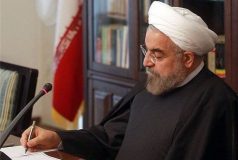As the Islamophobia index increases: On being Muslim in America
“I think the real question is not whether America is afraid of Islam (and its adherents) but whether Muslims should be afraid of the US and Americans especially in this post-9 /11 world.” —Attorney Diana Mae Cabili
Being Muslim in America carries the risk of being reviled, insulted, discriminated against, humiliated publicly or, worse yet, physically attacked. Despite having been a part of the American landscape since 1501, Muslims have faced discrimination, suspicion and hatred bordering on public hysteria, especially since the 9/11 attacks. With the ascendancy of Donald Trump and his virulent anti-Muslim diatribes, the prospect of a McCarthy-era-like internment of Muslims in the United States does not appear to be off the table given current policy trends.
Make no mistake about it; Islamophobia in the U.S. not only is on the rise but also is condoned public policy. The Institute for Social Policy and Understanding (ISPU) with support from the Bridge Initiative of the Alwaleed Center for Muslim-Christian Understanding at Georgetown University has developed the National Index of Islamophobia based on responses to various survey questions designed to uncover the deep-seated beliefs of respondents in five particular anti-Muslim stereotypes, which regrettably are often utilized by U.S. political leaders during campaigns to gain voter support.
These five anti-Muslim stereotypes are that most Muslims living in the United States: are more prone to violence than other people; discriminate against women; are hostile to the United States; are less civilized than other people, and are partially responsible for acts of violence carried out by other Muslims. These five stereotypes are linked to constituent support for policies, enacted by government officials, which discriminate specifically against Muslims, such as the surveillance of mosques, racial profiling and heightened security scrutiny of Muslims at airports.
Here in the quiet border community of Las Cruces, New Mexico, people seem to be generally tolerant and supportive of Muslims. Perhaps this is because Hispanic Americans are five times as likely to hold positive views of Islam and Muslims as negative views. Ironically, the only place where I have been even questioned aggressively about my Shi’a Islamic faith and connection to the Islamic Republic has been at the local mosque. But Las Cruces appears to be an exception to a general U.S. trend towards increasing Islamophobia. Over one quarter of Americans surveyed in a recent poll conducted by the ISPU endorsed negative stereotypes of Muslims and Islam. In fact, White Evangelicals are twice as likely to hold negative views of Muslims as positive ones.
As a Muslim living in the United States, I, too, have been discriminated against. Past employers have made it difficult for me to do salaat at the proper times, and have even suggested that I do the prayer in a filthy janitor’s closet so as not to bother or distract other employees. I have been threatened with loss of employment for exhibiting support for the oppressed Palestinians, who have been the perpetual targets of Israeli violence. I have been reprimanded for speaking out against possible U.S. military action against Iran. I have been told that I should be shot for simply wearing a small flag of the Islamic Republic of Iran on my jacket. All this and more has taken place in the alleged bastion of human rights and religious freedom known as the United States of America.
However, I am not alone. Seventy-five percent of my brothers and sisters in Islam believe there is a great deal of discrimination against Muslims in the United States. Nearly the same number of Muslims is worried by the actions of the current U.S. president, and do not feel Islam is considered to be part of mainstream American society. About half feel that being Muslim in America has become more difficult and have themselves personally experienced an act of discrimination. Yet in spite of their Islamophobic environment, nearly nine out of ten Muslims in America claim to be proud to be Muslim and, astoundingly, proud to be American. I myself, while proud to be a Muslim, do not profess membership in the latter group, seventy percent of whom still hold fast to the American dream.
Unfortunately, Islamophobia seems to be a commonality uniting a number of disparate hate groups in the United States. The Southern Poverty Law Center, a forerunner in confronting racial, ethnic and religious hatred, has identified 33 Islamophobic groups operating openly on Facebook, all of which engage in anti-Muslim imagery and promote Islamophobic stereotypes to attract members. Some of these hate groups actually have avoided being screened out for hate speech and Islamophobic content by claiming to be educational forums. For example, the group “Infidels United for Truth” claims to be “for the education and sharing of information globally about the dangers of Radical Terrorism and how it is affecting all of the world.”
Professor of computer science at Elon University Megan Squire has done preliminary research on Islamophobia and has found it to be a common thread among hate groups. Squire’s findings indicate that those groups holding anti-Muslim and anti-immigrant views do have significant common membership. Moreover, analysis of the data shows that “anti-Muslim ideologies, in particular, can serve as a bridge between mostly disconnected communities, such as between anti-government and white nationalist communities.”
Yet the categorization of Islamophobia as merely “anti-Muslim” animosity overlooks the systemic racism inherent in the Orientalist world view that permeates and, in fact, predates the creation of the United States. Concerning this danger professor of law at the University of Detroit Mercy Khaled A. Beydoun warns, “To reduce Islamophobia to ‘anti-Muslim animus’ and nothing more overlooks its expansion and penetration into American culture, news, media, law, and political parlance.” As clearly evidenced by the “Muslim ban,” the Trump regime has endorsed Islamophobia as state policy, which legitimatizes anti-Muslim stereotypes widely held by private U.S. citizens.
To see the systemic nature of Islamophobia in the United States, it is only necessary to note that Muslims are viewed as a “racial and socioeconomic monolith.” In other words, Americans tend to view Muslims as a race, just like Blacks, Native Peoples, or Japanese, and given the endemic nature of racism in the U.S., we see that Islamophobia is another virulent strain of racism. The IPSU concurs, noting that “Islamophobia is just one branch on a bigger tree of bigotry.”
Continuing with the IPSU’s tree metaphor, we can understand that merely loping off the branch of Islamophobia does next to nothing to cut down the tree of American racism that nourishes its growth. Fertilized by Facebook and other social media, the ugly branch of Islamophobia, after pruning, will not only sprout anew but also more vigorously than before. The same holds for another branch sprouting from the same tree, Iranophobia.
As far as Facebook is concerned, it is no exaggeration to call it fertilizer for the tree of bigotry, as can be seen by the central role played by Zuckerberg’s social media platform in the genocide of the Rohingya Muslims of Myanmar. According to Marzuki Darusman, chairman of the U.N. Independent International Fact-Finding Mission on Myanmar, Facebook has “substantively contributed to the level of acrimony and dissension and conflict, if you will, within the public.” U.N. Myanmar investigator Yanghee Lee, concurring, noted, “I’m afraid that Facebook has now turned into a beast, and not what it originally intended.” Similarly, Equality Labs, a South Asian community technology organization, found that most hate speech violations on Facebook India are Islamophobic, and 93 percent remain posted.
Given that Islamophobia and Iranophobia are both flourishing branches on this mammoth tree of systemic American bigotry, it is self-evident that the tree itself must be felled and the stump of residual racism uprooted. Muslims should not be afraid of the United States and Americans, as Ms. Cabili has suggested in the epigram. Instead, we Muslims must carefully sharpen the Ax(is) of Resistance, uniting in our Islamic Revolution to cut down the tree of bigotry once and for all.
YAW/YAW
- entehaj admin
- کد خبر 102378
- پرینت





